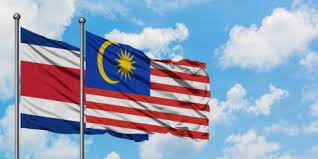In a communique, the specialized UN agency in education, science and culture issues stated that the awarding ceremony will be held this Wednesday, in the context of the celebration for the 50th anniversary of the Man and the Biosphere Program, during the 41st General Conference of UNESCO, a forum taking place here from November 9 to 24.
The Malaysian institution was awarded for its initiatives to monitor and preserve endangered species of national interest, producing publications such as the Plant Red List and documenting the traditional knowledge of indigenous peoples and local communities.
The Costa Rican university won the UNESCO-Sultan Qaboos Prize for its support to create new biosphere reserves in Latin America, such as Sumaco (Ecuador), Cabo de Hornos (Chile) and Agua y Paz, in Costa Rica.
According to the jury, both institutions also stood out for their outreach and public awareness, such as outdoor activities for students and the development of community farms and eco-tourism.
Allocated every two years since 1991, the UNESCO-Sultan Qaboos Prize for Environmental Conservation was established thanks to a donation by Sultan Qaboos Bin Said Al-Said of Oman.
mh/iff/rgh/wmr










